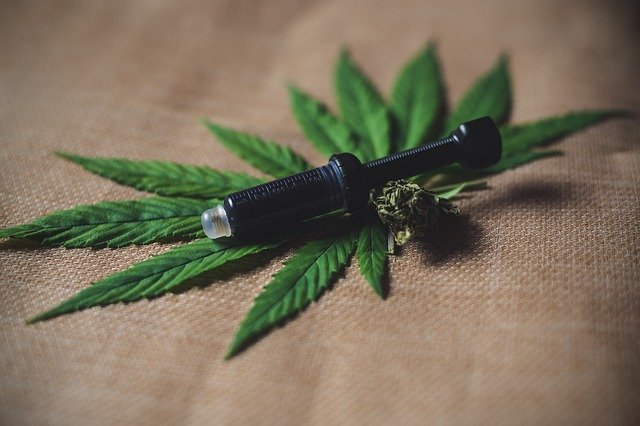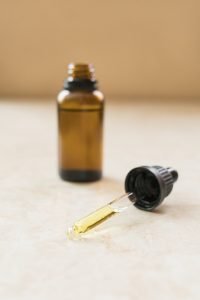
In recent years, CBD (cannabidiol) has emerged as a popular natural remedy, praised for its potential health benefits without the psychoactive effects associated with THC. As more individuals turn to CBD for relief from anxiety, pain, and other health issues, understanding the appropriate dosage becomes crucial. This guide aims to provide a comprehensive overview of how to master CBD dosing for optimal benefits, ensuring consumers make informed decisions tailored to their unique needs.
Understanding CBD and Its Benefits
CBD is one of over 100 cannabinoids found in the cannabis plant. Unlike THC, CBD does not produce a “high,” making it an attractive option for those seeking relief without psychoactive effects. Research suggests that CBD may offer a range of health benefits, including:
– **Pain relief**: CBD may help reduce chronic pain by impacting endocannabinoid receptor activity and interacting with neurotransmitters.
– **Anxiety and depression**: Studies suggest that CBD might alleviate symptoms of anxiety and depression, offering a natural alternative to pharmaceutical drugs.
– **Neuroprotective properties**: CBD’s potential to impact the endocannabinoid system and other brain signaling systems has sparked research into its use for neurological disorders.
– **Heart health**: Some research indicates that CBD may benefit heart health by reducing blood pressure and preventing heart damage.
– **Antioxidant and anti-inflammatory effects**: CBD’s properties may contribute to overall health benefits, including reduced inflammation and oxidative stress.
Factors Influencing CBD Dosage
Several factors influence the appropriate CBD dosage for an individual. Understanding these factors is key to determining the most effective dosage.
Body Weight
CBD dosage often correlates with body weight. Individuals with higher body mass may require larger doses to experience the desired effects. It’s generally recommended to start with a low dose and gradually increase until the desired effects are achieved.
Metabolism
An individual’s metabolism plays a significant role in how quickly CBD is processed and eliminated from the body. Those with a fast metabolism may require more frequent dosing to maintain CBD levels in the system.
Severity of Condition
The severity of the condition being treated can also impact dosage. For instance, those using CBD for severe chronic pain may need higher doses compared to those using it for mild anxiety.
Tolerance Levels
Over time, individuals may develop a tolerance to CBD, requiring higher doses to achieve the same effects. It’s important to monitor dosage and adjust as needed to maintain efficacy.
Product Type and Concentration
CBD products come in various forms, including oils, capsules, edibles, and topicals. The concentration of CBD in each product can vary significantly, affecting the optimal dosage. It’s essential to read product labels and understand the concentration to ensure accurate dosing.
Methods of Consumption
The method of CBD consumption can influence both the dosage and the effects experienced. Here’s a look at the most common methods and their implications for dosing:
CBD Oil/Tinctures
CBD oil or tinctures are popular due to their versatility and rapid absorption. They are typically administered sublingually (under the tongue) for faster effects. Dosage can be easily adjusted by changing the number of drops consumed, making it ideal for those new to CBD.
Capsules and Edibles
Capsules and edibles offer a convenient and discreet way to consume CBD. However, they take longer to produce effects due to digestion and metabolism processes. Dosage in these forms is pre-measured, which can be beneficial for consistency but may require patience for dose adjustments.
Topicals
Topical CBD products, such as creams and lotions, are applied directly to the skin. They are typically used for localized relief and do not enter the bloodstream, which means calculating dosage differs from ingestible forms.
Vaping and Smoking
Vaping or smoking CBD provides the fastest onset of effects due to direct absorption into the bloodstream through the lungs. However, this method can make it challenging to determine an exact dosage and may not be suitable for those with respiratory issues.
Determining Your Optimal CBD Dosage
Finding the optimal CBD dosage involves a process of trial and error. Here are steps to guide you in determining the best dosage for your needs:
Start Low and Go Slow
Begin with a low dose of CBD and gradually increase it over time. This approach allows you to gauge your body’s response and minimize potential side effects.
Monitor Effects
Keep a journal to track your dosage, method of consumption, and any effects experienced. This record will help you identify patterns and adjust dosage as needed.
Consult with a Healthcare Professional
If you have underlying health conditions or are taking other medications, consult with a healthcare professional before starting CBD. They can provide personalized guidance based on your medical history.
Consider Product Quality
Choose high-quality CBD products from reputable sources. Look for products that have been third-party tested for purity and potency to ensure you’re getting a reliable product.
Common Dosage Guidelines
While individual needs vary, there are general dosage guidelines based on the type of effect desired:
– **Microdosing (1-5 mg)**: Often used for general wellness and mild symptoms such as occasional stress or headaches.
– **Standard dosing (10-50 mg)**: Commonly used for more pronounced symptoms such as chronic pain, inflammation, and anxiety.
– **Macro dosing (50-100 mg and above)**: Typically reserved for severe conditions, such as epilepsy or cancer-related symptoms, under medical supervision.
Potential Side Effects of CBD
CBD is generally well-tolerated, but some individuals may experience side effects, especially at higher doses. These can include:
– Dry mouth
– Drowsiness
– Lightheadedness
– Changes in appetite or weight
– Diarrhea
If side effects occur, consider reducing the dosage or trying a different method of consumption.
Conclusion
Mastering CBD dosing is a personal journey that requires careful consideration of individual factors and product characteristics. By starting with a low dose, monitoring effects, and consulting with healthcare professionals as needed, you can find the optimal dosage that provides the most benefits for your unique needs. Remember, the quality of the CBD product is as important as the dosage itself, so always choose products from reputable brands that prioritize transparency and safety. With the right approach, you can harness the potential of CBD to enhance your well-being.
#ChatGPT assisted in the creation of this article.







